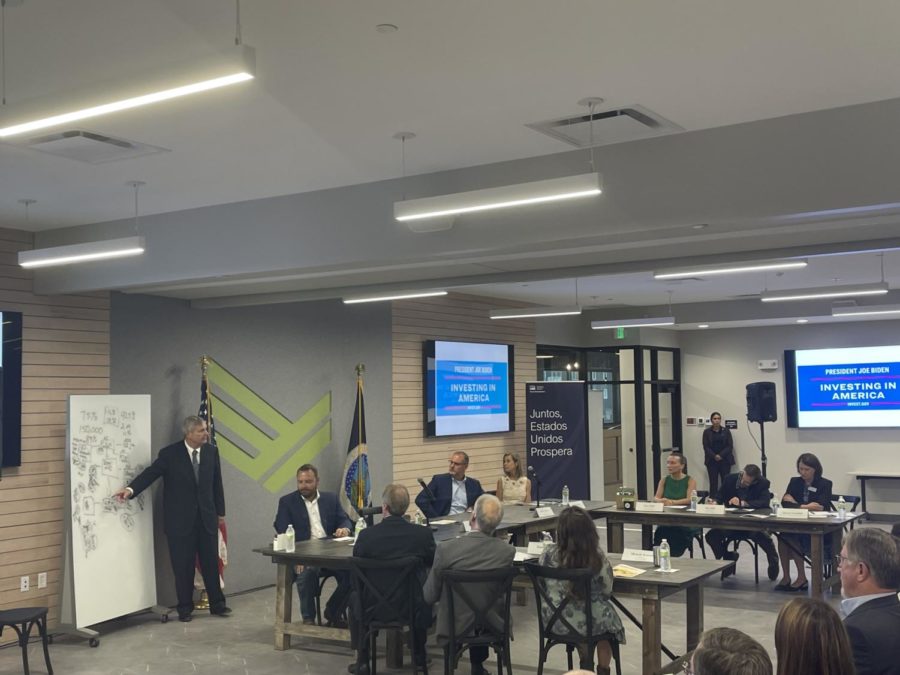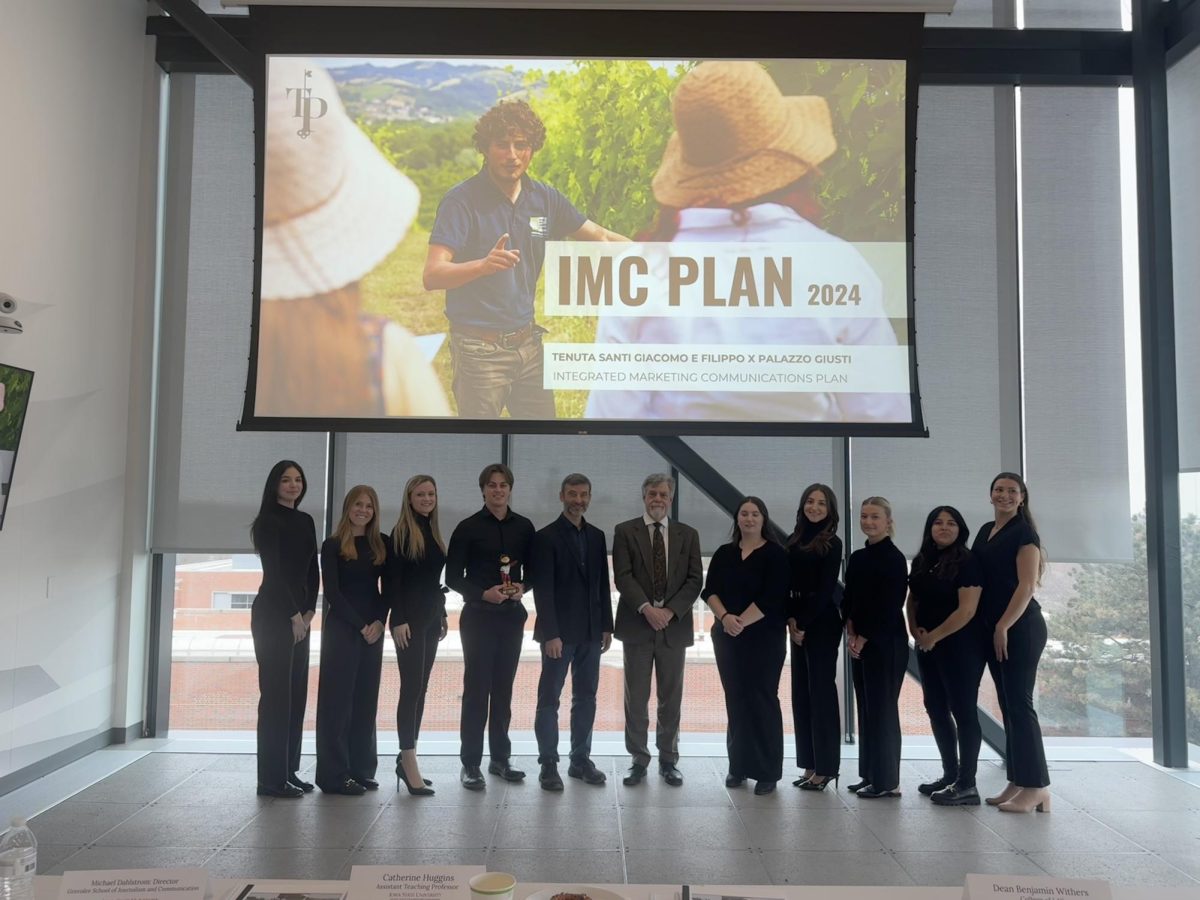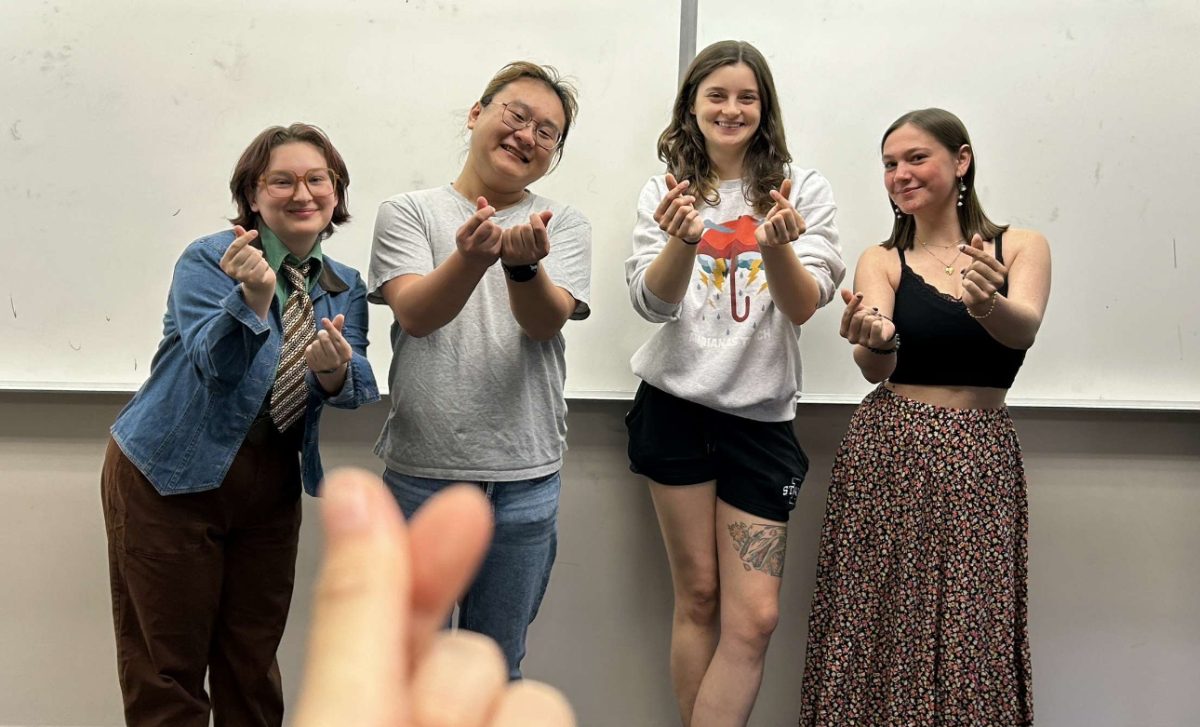U.S. Department of Agriculture Secretary Tom Vilsack made several announcements in discussing his work to address agricultural revenue inequality during an investing in Iowa stockholder meeting at Landus Cooperative in Des Moines on Thursday.
Vilsack said about 150,000 farms receive 89% of the agricultural income, leaving 2 million farmers to split the remaining 11%.
“The president believes that you’ve got to grow the middle class from the bottom up or the middle out, and that’s certainly true in terms of the consequences of farming,” Vilsack said. “So, the question is, is there another opportunity available for small and mid-sized farming operations that essentially gets us to a point where they can stay in business?”
The answer was presented in two ways by Vilsack, one through climate-smart agriculture and the other with local and regional farming.
“Iowa currently has 13 signed project contracts for products, covering 26 commodities, and 48 climate-smart practices that farmers will be paid to do, so there’s no risk financially for the farm and markets will be created,” Vilsack said.
One example of a local and regional program Vilsack discussed was the Farm to School program which was a solution to eliminate what he said was the middleman. Vilsack said for every dollar spent at a grocery store, a farmer gets 16% to 18% of it.
“In the local regional food system, the farmer has the ability to negotiate. Now why would somebody purchase at the local regional level? Well, because there’s no middleman,” Vilsack said. “If you eliminate some of that cost, the farmer can get more, and the customer who’s buying can pay less. What’s not to like about that?”
Vilsack made several official announcements Thursday regarding funding allocations, including a $25 million grant through the Meat and Poultry Processing Expansion Program for a Cattlemen’s Heritage Beef Company processing facility in Mills County Iowa.
Chad Tentinger, the principal developer for Cattlemen’s Heritage Beef Company, said that the awarded grant is an investment in a small family farm in the Midwest that tells a story to consumers of where their food comes from.
“In a world where a lot of products are not talking about their stories, not talking about where they’re started, our goal is the exact opposite,” Tentinger said. “We will be bringing that story front and center [by] introducing the small family farms to the consumer.”
Vilsack also announced that Landus Cooperative and Progressive Ag Cooperative received a $10 million grant through the Fertilizer Production Expansion Program to increase local fertilizer options.
Vilsack announced Wednesday that the USDA will provide $2.5 million to the Higher Blends Infrastructure Incentive Program in grants to nine companies to expand the use and availability of higher-blend biofuels in Iowa.
As the current Farm Bill is set to expire at the end of September, Vilsack said the debate surrounding it should encompass two things.
“We have to preserve the funding mechanisms that exist today in the Inflation Reduction Act to help fund and support this, and we have to continue to support the authorities that allow the Department of Agriculture to do this,” Vilsack said.
In previous reporting by the Daily, Iowa Secretary of Agriculture Mike Naig has characterized the Farm Bill as the most important piece of legislation this year.
When asked by the Daily how conversations have gone with secretaries like Naig regarding the Farm Bill, Vilsack said he meets with the National Association of State Departments of Agriculture monthly and the department has a strong relationship with the agriculture commissioners and secretaries.
“We also provided $450 million, and we found that through ag commissioners and secretaries for non-meat and poultry processing,” Vilsack said. “So, if there are opportunities in the state of Iowa, the secretary now will have the [resources] to be able to fund and help assist the non-meat and poultry processing opportunities, so that reflects the outcomes that we have in the relationship we have.”
The visit to Iowa is part of President Joe Biden’s Invest in America tour, which features eight cabinet members making a combined 20 stops. Vilsack has already made a tour stop in Michigan.








